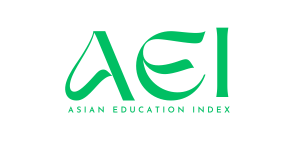Adaptation of German Language Teachers to The Medical Field
Keywords:
German language teaching, medical terminology, professional language teaching, language teacher adaptation, medical german, content and language integrated learning (CLIL), pedagogical approaches in medicine.Abstract
The article discusses the process of adapting German language teachers to the medical field, emphasizing the importance of foreign language education within a professional context, particularly in medicine. The paper outlines the key roles and responsibilities of a language teacher in the medical domain, highlighting the need for specialized knowledge of medical terminology, clinical scenarios, and interactive teaching methods. It elaborates on the stages of adaptation, including knowledge, methodological, and psychological adjustments that teachers must undergo. Furthermore, the article presents modern pedagogical approaches such as task-based learning, problem-based learning (PBL), and case-based discussions, which enable teachers to integrate professional tasks into language learning.
References
Hülsmann, D., & Romer, P. (2016). Fachdeutsch Medizin. Stuttgart: Klett Verlag.
Langenscheidt. (2020). Deutsch im Krankenhaus. Berlin: Langenscheidt Publishing Group.
Heine, K. (2019). Kommunikation im medizinischen Alltag. München: Urban & Fischer.
Schröder, H. (2018). Berufsbezogenes Deutsch für Gesundheitsberufe. Berlin: Cornelsen.
Swales, J. M., & Feak, C. B. (2012). Academic Writing for Graduate Students. University of Michigan Press.
NetDoktor.de. (n.d.). Online medizinisches Lexikon. Retrieved from https://www.netdoktor.de
Dudenredaktion. (2021). Das medizinische Wörterbuch. Mannheim: Bibliographisches Institut.
European Framework for CLIL Teacher Education. (2010). CLIL Teacher Profile. European Commission.











